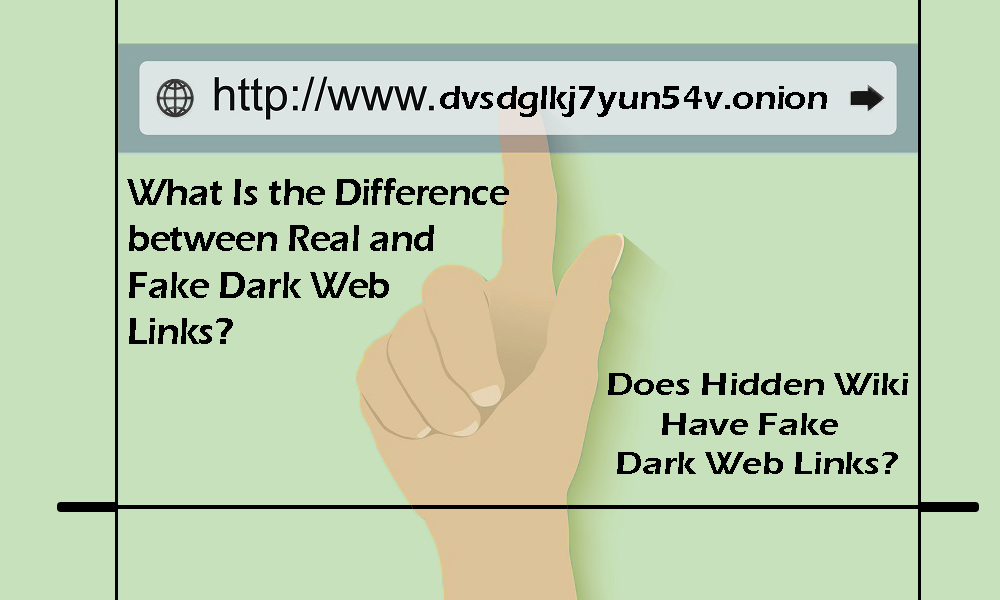The dark web is notorious for its illegal purposes, but it also has some bright uses. Being mindful of your online activity may help you browse the web more safely.
One of the common issues of the dark web is differentiating between real and fake links. So, let’s look at everything you must know about these sites.
Does Hidden Wiki Have Fake Dark Web Links?
The Hidden Wiki is a famous directory on the dark net that is considered the best place to find dark links. However, that does not mean that everything is safe in this directory. You may encounter fake links on the wiki.
Sites on the dark net are not indexed and do not have regular security certificates like surface websites. This is why it is hard to determine which platform is real.
Avoid clicking on every link you see in the hidden directory because it may redirect you to a fake page.
What Is the Difference between Real and Fake Dark Web or Hidden Wiki Links?
Here are some differences between real and fake Hidden Wiki and dark net links:
-
Originality
The main difference between fake and real websites is their originality. For example, the latter links will show you authentic content that you may distinguish from its various features. Meanwhile, fake links may take you to non-existent websites.
Clicking on some fake links may also open an ad directly instead of the relevant website. Remember that real links can offer illegal and legal services. So, you should not consider a site to be fake if it is offering you illegal services, such as creating a fake ID for you.
Another feature of original sites is that they primarily use the Tor network and may not be available elsewhere.
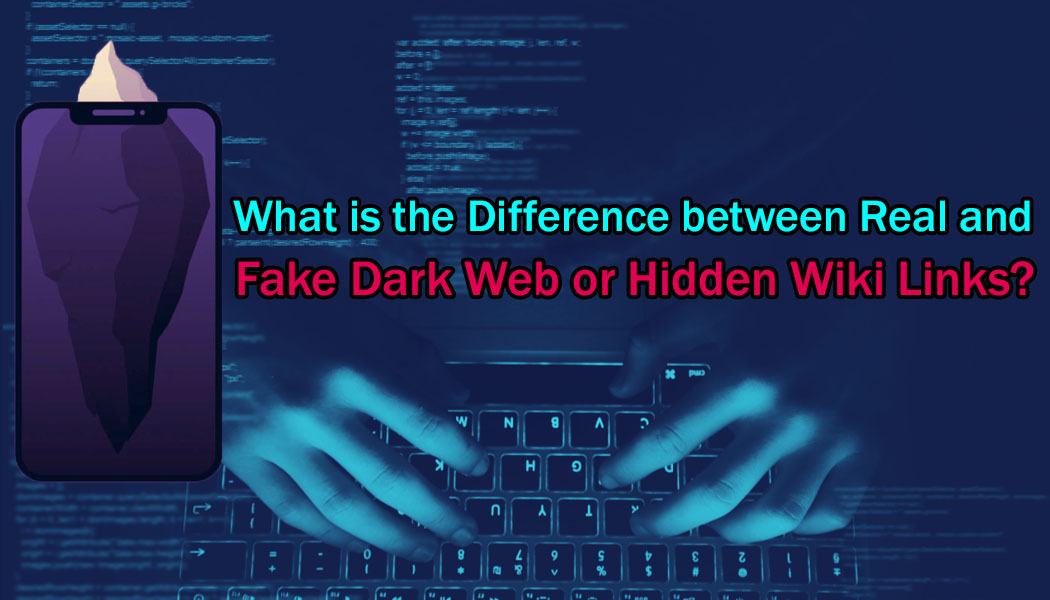
-
Content
The content of fake and real links vary significantly due to their different purposes. Fake links may show you popup ads on the platform, or they may spread malware on your device. You may identify such sites by turning on antivirus protection beforehand.
Antivirus apps such as AVG will warn you of suspicious content if you’re trying to open a fake onion link. The content on real sites may vary from informational articles to black-market goods. Such links usually do not open or show ads.
Read the content of a site carefully to determine its authenticity. If a platform is asking for your personal card details even when it does not sell stuff, be wary.
-
Degree Of Risk
The risk factor of real and fake dark links varies. A former site will have medium security risk and may offer you tips on how to remain safe on the dark net. It may also perform robotic checks to confirm a legitimate person is using the platform.
Meanwhile, fake links are associated with high risk. They may freeze your computer or shut it down upon opening the site. This is because such platforms install malware on your device.
Fake sites may also make you disclose your personal information without realizing the scam. Remember, real platforms can also be scary because hackers may be able to intercept your connection.
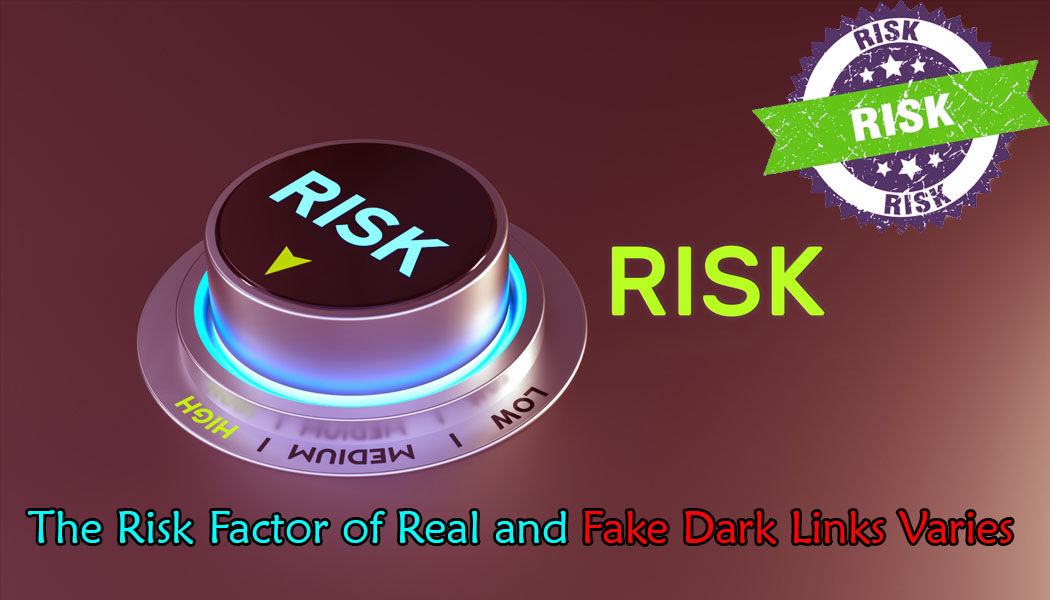
How to Know If a Hidden Wiki or Dark Web Link Is Real?
Let’s look at some common ways you can identify if your dark web link is real:
-
The Hidden Wiki Link Must Be An Onion URL
The best way to identify original dark web links is by checking the URL address. Read the complete link to ensure it does not have any spelling mistakes or punctuation errors. People who create fake mirror links usually change a single letter, capitalization, or punctuation of the address.
You must also ensure the link ends with “.onion” to stay safe. Wiki links that end with “.org” or “.com” are not dark sites because you can also access them on the surface web.
Fake addresses pretend to be a part of the dark web, but they also target people on the clear web.
-
Loading Time
The loading time of a website is an important and easy way to determine the platform’s originality. Real links don’t take much time to load. The page may appear on your screen within a few seconds or up to two minutes.
If a platform takes too long to load, it may be fake. Some cybercriminals may use the prolonged loading time to install a remote bot on your device to steal your computer’s data.
Sometimes, a server load may also prolong the loading time. This is why you must be careful when waiting for the link to load. If an unknown site is having this issue, it is better to close it and find another link.
-
The Hidden Wiki Link Should Start With HTTP
On the surface web, people check a website’s SSL certificate to understand whether it is real. Links on the wiki directory and dark net do not have such security certificates. This is why the ideal way to check authenticity is by looking at the URL’s beginning.
Links starting with “HTTPS” are usually fake and try to steal data from dark users. This term indicates that the platform is secured by encryption, such as SSL certificates.
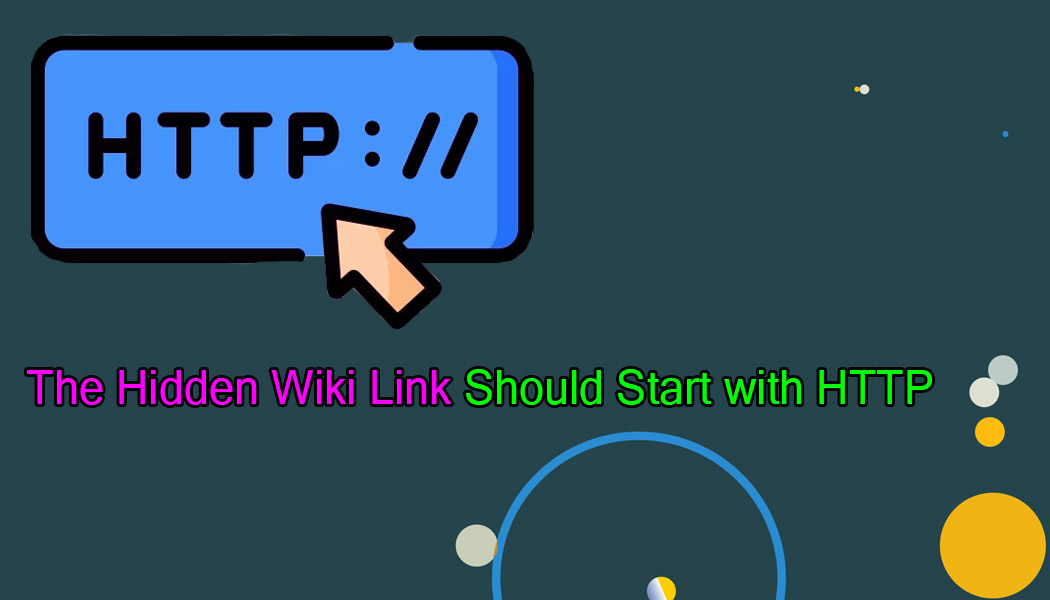
Since dark sites don’t take such security measures, you can understand that the platform is pretending to have encryption.
How To Know If A Hidden Wiki Or Dark Web Link Is Fake?
Below are some tips to help you identify fake dark net links:
-
The Hidden Wiki Link Leads To Fake Mirror Sites
A prime example of a fake Wiki link is a duplicate version of Ahmia. Ahmia is a legitimate search engine on the dark net that can help you find real dark links. However, someone has created its modified version for scamming.
The fake search engine redirects users to fake sites that are involved in financial and data theft scams. This information has been brought to light by the original Ahmia’s owner.
He has found more than 20 fake sites that the copycat version of Ahmia led him to. False platforms may also overadvertise by calling themselves uncensored, original, or authentic.
-
There Are Only Ads On The Sites You Accessed From The Hidden Wiki
A Wiki link is fake if it does not show anything else except ads. The advertisement may be in the form of videos or fake business ad posters. Clicking on the fake onion link may also redirect you to platforms that ask you to spin a wheel to win rewards.
Some sites do have to use ads to operate without additional costs. To identify such platforms, look closely at the content of the ad. If the advertisement shows pornography and sensitive content, it is likely the site is false.
-
The Hidden Wiki Link Wants Your Credit Card Details
Dark web transactions are mainly performed using cryptocurrency. Sites that ask you to use your card or reveal its details are likely to be fake. Such platforms try to make you disclose your personal information to lock you out of your accounts.
Hackers may also steal funds from your account using that information. So avoid sites that ask for your name, contact number, and credit card details. If your anonymity is compromised, you will suffer serious consequences.

The worst part is you cannot go to the authorities to file a complaint because the agents may find you suspicious.
What Are Fake Hidden Wiki Links Used For?
The main purpose of fake links is to dupe you. Here are some scams that people conduct through such sites:
-
The Hidden Wiki Link May Conduct Phishing Scams
Upon opening a wiki link, it may ask your email for a newsletter and other stuff. Avoid giving your address because such sites are involved in phishing scams.
They mainly aim to obtain your login credentials or financial information to cause you a significant loss. A phishing scammer may steal your details to blackmail you for money or sell your data online.
Some scammers also use your financial credentials to transfer money from your account to another.
-
Installing Remote Virus On Your Device
Fake links can be used to spy on you because opening such sites may add malware to your laptop. Some platforms that offer movie or TV series downloads may upload fake files that can infect your computer with a virus when you open it.
Some fake links also add remote software to your device to gain access to your microphone and camera. They can then use those recordings to blackmail you.
-
A Fake Hidden Wiki Link May Perform Black Market Scams
Black market scams through fake Wiki links are common on the dark net. Such platforms may encourage you to buy stuff such as branded products at a cheap rate from them. They take advance payment on items and go off-grid after the payment.
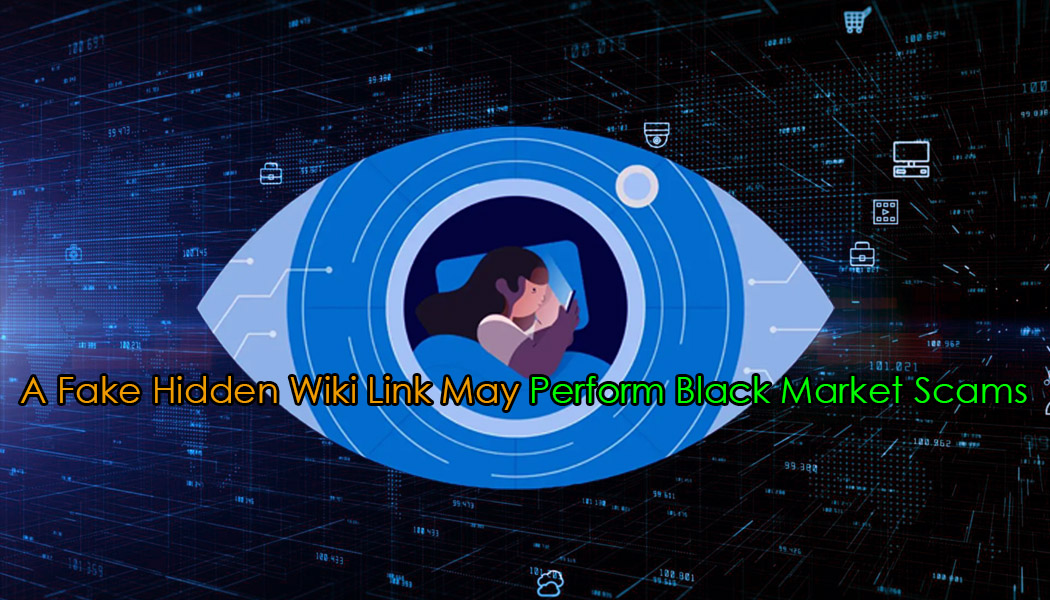
Final Words
This is everything you need to know about the differences between real and fake dark net links. Use reliable directories and research platforms before opening specific URLs to stay safer.

